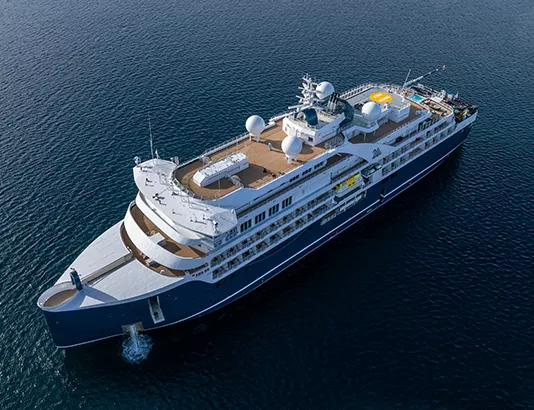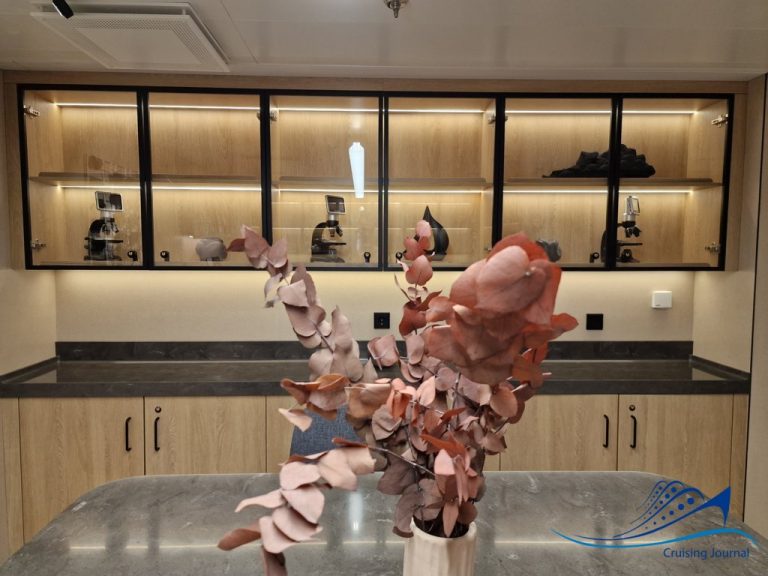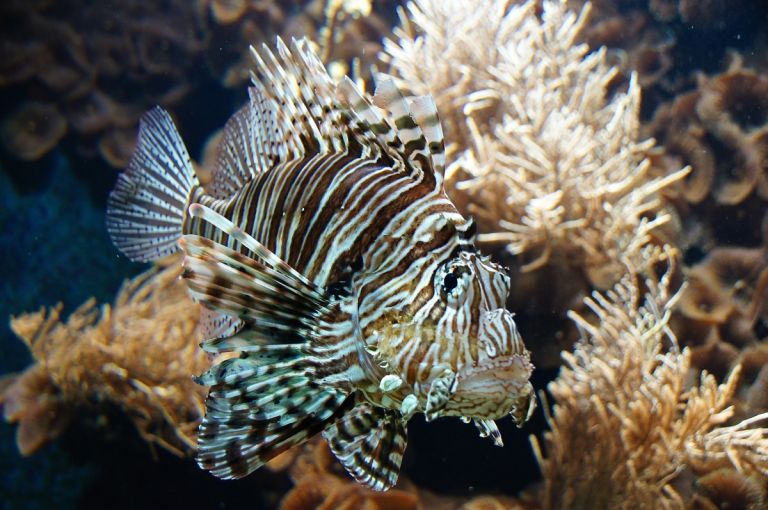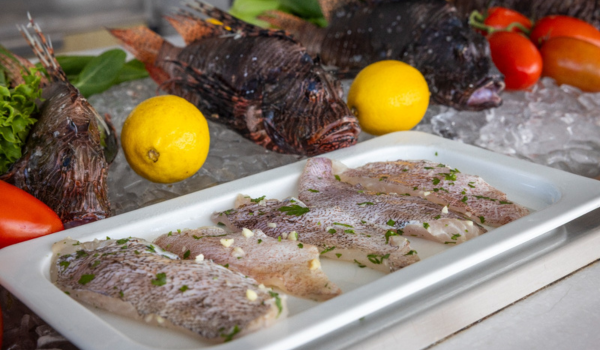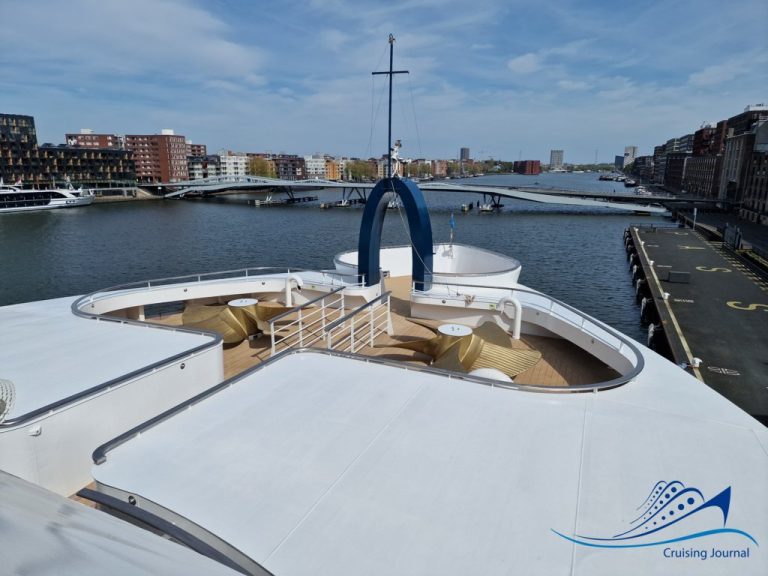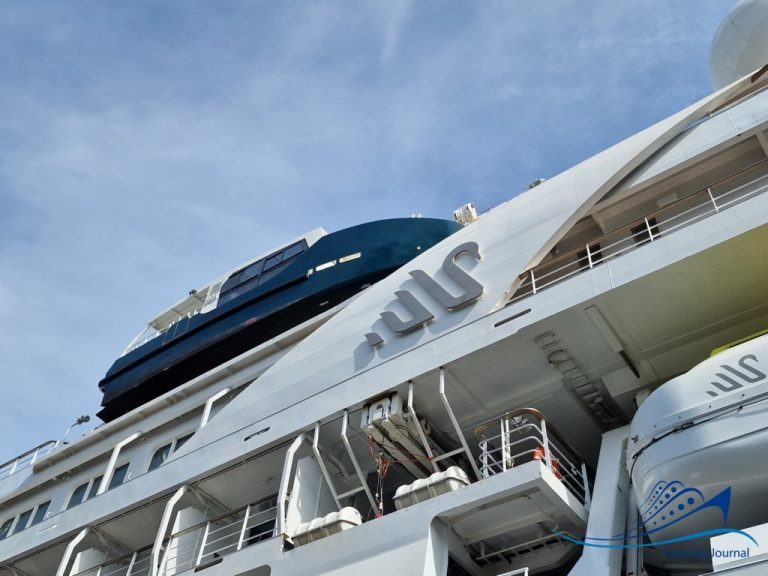Swan Hellenic Launches an Initiative Against Lionfish
Swan Hellenic has launched a new initiative aimed at controlling and raising awareness about the lionfish invasion in the Mediterranean. The announcement was made in September 2025 aboard the SH Diana, during a port call in Chania, on the island of Crete, as part of an eight-night cultural cruise from Athens to Istanbul.
The project was developed in collaboration with the NGOs Elafonisos Eco and SDG4MED, and is part of the European Commission’s mission “Restore our Ocean and Waters by 2030.” It offers a concrete response to the call to action issued by H.S.H. Prince Albert II of Monaco, who has long been an active supporter of efforts to counter the spread of lionfish throughout the Mediterranean basin.
SH Diana
SH_Diana_Expedition_Lab (3)
During the Elafonisos Eco Week 2025, held from April 14 to 16 on the Greek island of the same name, Prince Albert II delivered a keynote speech stressing the urgent need to address the rapid spread of this invasive species—also known as scorpionfish—in the Mediterranean. He emphasized the importance of collective action to protect marine biodiversity, improve water quality, and strengthen environmental education, while proposing the creation of a “living laboratory” to tackle the issue of alien species. The initiative presented by Swan Hellenic is therefore a timely and concrete response to this appeal, with an innovative approach that combines science, gastronomy, and public engagement.
The event aboard SH Diana included a themed dinner featuring dishes prepared by the onboard culinary team using locally caught lionfish, demonstrating how this species can be transformed into a valuable food source. The evening concluded with a dedicated awareness workshop that outlined the lionfish’s ecological impact and the most effective containment strategies. Originally from the Indo-Pacific, lionfish were first sighted off the coast of Florida in the 1980s and have since spread throughout the U.S. East Coast, the Gulf of Mexico, and the Caribbean Sea, populating coral reefs, shipwrecks, and other warm marine habitats. Since 2012, they have also begun colonizing the Mediterranean after passing through the Suez Canal. The species poses a serious threat to marine ecosystems: each female can produce up to two million eggs per year, and as a voracious predator of juvenile fish, shrimp, small lobsters, crabs, and other marine life, it can reduce native fish populations by up to 30% in just five years. Confirmed sightings have already been reported in Cyprus, Crete, Sicily, and Calabria, and scientists warn that lionfish could soon reach the waters of Monaco.
Lionfish
Lionfish
Swan Hellenic’s initiative builds upon the pioneering work of Enrico Toja, President of Elafonisos Eco, who has turned the Greek island of Elafonisos into a center for lionfish awareness and research. Onboard the SH Diana, Mr. Toja—along with Katerina Kokkinaki, Head of Sustainable Marketing and Projects for the NGO—explained the species’ rapid spread, its devastating impact on local ecosystems and fisheries, and the urgent need to involve consumers, chefs, and opinion leaders in turning this threat into an opportunity. According to Toja, gastronomy plays a crucial role: not only is lionfish edible, but it is also delicious—ideal for ceviche, grilling, or soups. Creating market demand for lionfish is, in his view, a practical and realistic strategy to help control the species.
The approach adopted by Swan Hellenic is fully aligned with the recommendations of the United Nations and the United Nations Development Programme (UNDP), both of which advocate for “control through consumption”—a strategy that encourages the culinary use of invasive species to help mitigate their spread. From this perspective, fishermen, chefs, consumers, and influencers are all essential players in transforming an ecological emergency into a sustainable and gastronomic opportunity. Swan Hellenic thus positions itself as a promoter of cultural change that, when integrated into the cruise experience, educates guests and actively involves them in a globally significant cause.
Andrea Zito, CEO of Swan Hellenic, reaffirmed the company’s commitment to environmental stewardship and the protection of marine ecosystems. As the creator of cultural cruising, he stated, Swan Hellenic bears the responsibility of raising awareness of environmental issues in the regions it explores. He added that the Lionfish Initiative brings together science, gastronomy, and guest engagement to support a cause that is vital to the future of the Mediterranean. The project has also earned praise from the scientific community, including Professor Laura Giuliano, Director General of the CIESM – the Mediterranean Science Commission, based in Monaco. Professor Giuliano emphasized the seriousness of the threat lionfish pose to Mediterranean biodiversity, and described Swan Hellenic’s initiative as a model example of the UN-endorsed approach, one that could play a key role in containing the species’ expansion.
SH_Diana_Swan_Nest
SH_Diana_Exteriors (5)
With this initiative, Swan Hellenic confirms its commitment to fostering knowledge and respect for the world’s most vulnerable environments, demonstrating how even luxury tourism can play an active and responsible role in protecting the planet. The Lionfish Control project stands as both a concrete response to a growing threat and an innovative example of how culture, science, and gastronomy can come together to generate environmental value and public awareness. Only through the active involvement of consumers and civil society will it be possible to turn the lionfish from an ecological threat into a sustainable resource, paving the way for a new model of marine conservation.
Don’t miss news, updates and reviews of Swan Hellenic on Cruising Journal, featuring photos, videos, and cruise deals.

